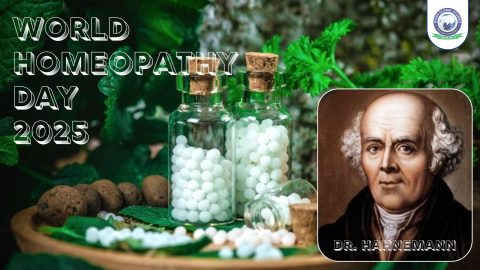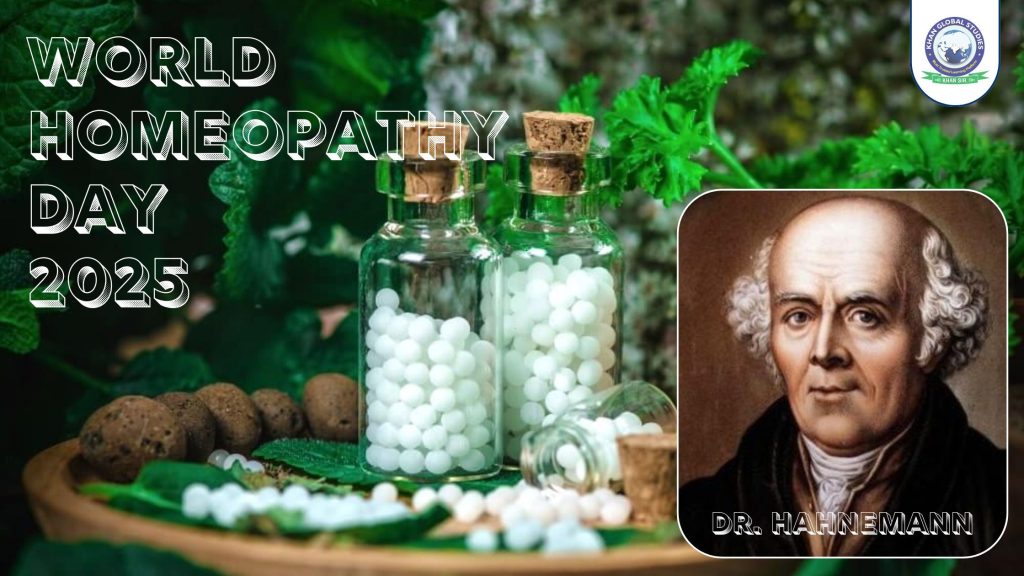Homeopathy is an alternative medical system based on the principle of “Like Cures Like.” This treatment method enhances the body’s self-healing ability and works on the root cause of the disease. Homeopathic medicines are derived from natural sources such as plants, minerals, and animal products. Since this medical system is gentle and free from side effects, it is widely used worldwide.
History of World Homeopathy Day
World Homeopathy Day is observed every year on April 10. This day is celebrated in honor of the birth anniversary of Dr. Samuel Hahnemann, the founder of homeopathy. Dr. Hahnemann was born on April 10, 1755, in Germany. In 1796, he discovered homeopathy and developed it as an effective treatment system. His medical approach gained popularity across the globe, and today, homeopathy is recognized as a valid medical practice in several countries.
Origin and Development of Homeopathy
The homeopathy medical system emerged in the 18th century. Dr. Samuel Hahnemann, observing the harsh methods and harmful effects of traditional medical treatments, sought to develop a new healing system. He introduced homeopathy based on the principle of “Like Cures Like,” meaning that a substance that causes specific symptoms in a healthy person can cure the same symptoms in a sick person when administered in a homeopathic form.
Purpose of World Homeopathy Day
The primary goal of celebrating this day is to spread awareness about homeopathy and strengthen its scientific foundation. Various symposiums, seminars, and health camps are organized on this day, where homeopathy experts share their research and experiences. In India and many other countries, government bodies and homeopathy institutions conduct special programs to help more people understand and adopt this medical system.
Growth and Status of Homeopathy in India
Homeopathy is highly popular in India and holds a prominent place among traditional medical systems. In 1973, the Government of India recognized homeopathy as an official medical system and established the Central Council of Homeopathy (CCH). Later, in 2014, the Ministry of AYUSH was formed to promote Ayurveda, Yoga, Homeopathy, Siddha, Unani, and Naturopathy. Today, thousands of homeopathy colleges, hospitals, and research centers are operational in India.
Acceptance of Homeopathy Worldwide
Homeopathy is recognized as an effective medical system in several countries. Its popularity is growing rapidly in Europe, America, Asia, and Latin America. Countries like Germany, France, Britain, Brazil, and India show a deep interest in homeopathy. In many nations, homeopathy has been integrated into medical education and is supported by the government.
Benefits and Effects of Homeopathy
The biggest advantage of homeopathy is that it works to eliminate the disease from its root. Instead of just suppressing symptoms, it strengthens the immune system. Additionally, homeopathic medicines have no side effects and are suitable for people of all ages. Homeopathy is especially effective in treating skin diseases, allergies, digestive issues, migraines, mental stress, and colds.
Conclusion
World Homeopathy Day is not just an occasion to commemorate Dr. Samuel Hahnemann’s birth anniversary but also a significant day to recognize the importance of homeopathy and promote its widespread use. Since homeopathy is natural, safe, and effective, it should be integrated with modern medicine. This day also provides an opportunity to encourage scientific research in homeopathy, making it even more effective and widely accepted in the future.
FAQs
Q1: What is Homeopathy?
Homeopathy is an alternative medical system based on the principle of “Like Cures Like.” This means that a substance that produces specific symptoms in a healthy person can treat the same symptoms in a sick person in homeopathic form.
Q2: Who discovered Homeopathy?
Homeopathy was discovered by Dr. Samuel Hahnemann in 1796. He was a renowned German physician and scientist.
Q3: When and why is World Homeopathy Day celebrated?
World Homeopathy Day is celebrated on April 10 every year to mark Dr. Samuel Hahnemann’s birth anniversary and to increase awareness about homeopathy.
Q4: Is Homeopathy safe?
Yes, homeopathic medicines are made from natural sources and generally have no side effects. They are considered safe for people of all age groups.
Q5: Can Homeopathy be an alternative to modern medicine?
Homeopathy can be an effective alternative for treating many diseases, but it is not a complete replacement for modern medicine. In some cases, combining both medical systems may provide the best treatment.



